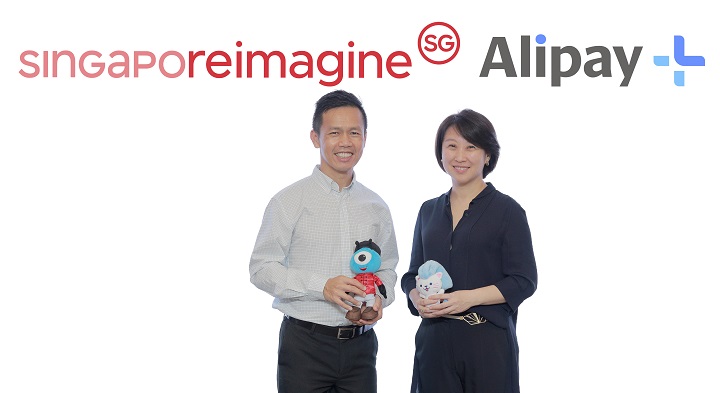
Angel Zhao, President of International Business, Ant Group)
- The latest phase of the partnership includes the “SingapoReimagine with Alipay+” joint marketing campaign.
- Three new mobile wallets are accepted in Singapore through Alipay+, bringing the total number to six.
- Users from Malaysia, the Philippines, South Korea, Thailand, Hong Kong SAR, China, and the Chinese Mainland can now seamlessly enjoy tourism offerings such as attractions, retail, and dining.
Ant Group today expanded its partnership with Singapore Tourism Board (STB) to make cross-border travel to Singapore more seamless and convenient. The partnership builds on a collaboration forged in 2019 and is focused on driving tourism growth in Singapore through a series of digital and marketing initiatives over the next two years.
To strengthen Singapore’s destination appeal among travelers from Asia, including key markets like Malaysia, the Philippines, South Korea, and Thailand, Ant Group launched the SingapoReimagine with Alipay+ campaign with STB. As part of SingapoReimagine, STB’s international recovery campaign, it offers fresh and innovative experiences to travelers from these markets, while allowing transactions in Singapore through mobile wallets that they are already familiar with.
The joint campaign will also highlight exclusive offers to users of the six Alipay+ partner mobile wallets when they travel to Singapore. In addition, Ant Group will progressively expand the Passion Made Possible Privileges (PMPP), a mini programme co-branded with STB to serve tourists to Singapore – previously available only on Alipay – to other Alipay+ mobile wallets. These initiatives will help Singapore businesses reach and engage a new pool of customers, increasing the visibility and awareness of Singapore’s tourism offerings for visitors before and during their trips to Singapore.
As part of the partnership, STB and Alipay+ will also explore piloting digital solutions with local businesses in areas such as digitalisation of service operations, digital marketing efficiency and enhancing customer experience.
The new mobile wallets accepted in Singapore are GCash from the Philippines, TrueMoney from Thailand, and AlipayHK from Hong Kong SAR, China, adding to existing partners Kakao Pay from South Korea, Touch ’n Go eWallet from Malaysia and Alipay from the Chinese Mainland. This brings the number of mobile wallets accepted via Alipay+ in Singapore to six. Travellers with these mobile wallets can easily and securely transact with local businesses across tourism and lifestyle industries that accept Alipay+, including retail shops at Changi Airport, ComfortDelgro taxis, hotels, and attractions such as Gardens by the Bay.
Ms. Angel Zhao, President of International Business, Ant Group said, “We deeply believe that the benefits of digital innovations can be amplified through open collaborations in the ecosystem. Ant Group is always open to join hands with partners such as STB to provide businesses, especially small and micro enterprises the best digital services, including payments and marketing solutions and we are committed to contributing to the digital transformation of industries and create greater value for societies.”
“Amid the fast recovery of the tourism industry, we are excited to play a part in promoting Singapore as a top destination of choice for travellers and making travel safe, seamless and efficient through digital solutions like Alipay+,” she added.
STB Chief Executive, Mr. Keith Tan said, “Singapore has seen strong travel demand from Asia since our reopening and we hope our joint initiatives can grow and sustain that demand. The next phase of our exciting partnership with Ant Group will also offer a seamless experience when travelers visit Singapore, build affinity for our destination, and drive the digitalization of our tourism sector.”
Hong Kong SAR, China, Malaysia, the Philippines, South Korea, Thailand, and Chinese Mainland were among Singapore’s top 15 markets from January to August 2022. Prior to the pandemic, approximately a third of Singapore’s visitors were from Southeast Asia, another third from the Chinese Mainland and the rest of Northeast Asia, and the final third from the rest of the world.

